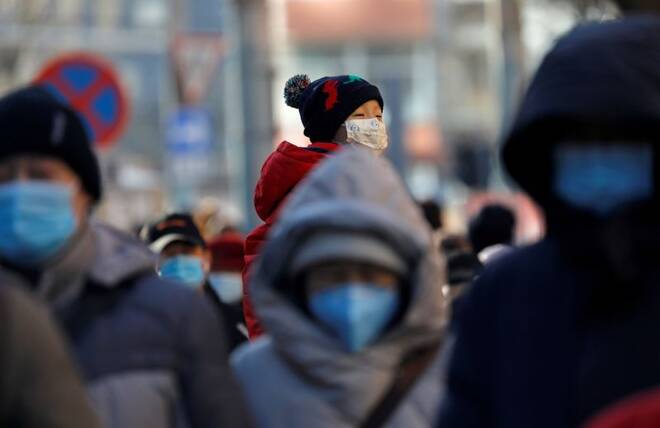Advertisement
Advertisement
Beijing to reopen schools, Shanghai declares victory over COVID
By:
SHANGHAI (Reuters) - Beijing's education commission said on Saturday all primary and secondary school students in the capital can to return to in-person classes from Monday, as COVID-19 cases have receded in recent days.
By Brenda Goh and Ryan Woo
SHANGHAI/BEIJING (Reuters) -Beijing on Saturday said it would allow primary and secondary schools to resume in-person classes and Shanghai’s top party boss declared victory over COVID-19 after the city reported zero new local cases for the first time in two months.
The two major cities were among several places in China that implemented curbs to stop the spread of the Omicron wave during March to May, with Shanghai imposing a two month-long city-wide lockdown that lifted on June 1.
The efforts, part of China’s adherence to a zero-COVID policy that aims to eradicate all outbreaks, have brought case numbers down but many of the heavy-handed measures have fuelled anger and even rare protests and taken a heavy toll on the economy.
Beijing shut its schools in early May and asked students to move to online learning amid a spike in locally transmitted COVID cases. Senior year students at middle and high schools were allowed to return to classrooms from June 2.
On Saturday, with case numbers trending lower in recent days, the capital’s education commission said all primary and secondary school students in the capital can return to in-person classes from Monday. Kindergartens will be allowed to reopen from July 4.
The Beijing Municipal Bureau of Sports said separately that sports activities for the young can resume at non-school locations on June 27 in areas where no community cases have been reported for seven consecutive days, with the exception of basement venues, which will remain shut.
The Universal Beijing Resort, which had been closed for nearly two months, reopened on Saturday.
Meanwhile, Shanghai reported no new local cases – both symptomatic and asymptomatic – for June 24, the first time the Chinese economic hub had done so since Feb. 23.
Shanghai Communist Party chief Li Qiang said at the opening at the city’s party congress on Saturday that authorities had “won the war to defend Shanghai” against COVID by implementing the instructions of Chinese President Xi Jinping, and that Beijing’s epidemic prevention decisions were “completely correct”.
The city, however, remains on edge. Most students have not been allowed to resume in-person classes and dining indoors is still banned. It also plans to continue conducting mass PCR testing for its 25 million residents every weekend until the end of July.
And underscoring continued difficulties in stamping out Omicron, the southern city of Shenzhen, which implemented a week-long lockdown in March, said on Saturday it would shut all cinemas and parks as well as suspend public events in Futian district, after six local cases were discovered there on Friday.
Restaurants in the district, that has a population of around 1.55 million people and houses the headquarters of Chinese insurance giant Ping An and the city government’s headquarters, will also be limited to 50% of their usual diner capacity, authorities said.
The city also now requires residents to show a negative COVID-19 test to enter public venues taken within the last 24 hours, shortened from 48 hours previously, which in essence requires people to test daily to enter places such as malls or take public transport.
(Reporting by Brenda Goh and Ryan Woo; Additional reporting by David Kirton in Shenzhen; Editing by Edwina Gibbs, Sam Holmes and Michael Perry)
About the Author
Reuterscontributor
Reuters, the news and media division of Thomson Reuters, is the world’s largest international multimedia news provider reaching more than one billion people every day. Reuters provides trusted business, financial, national, and international news to professionals via Thomson Reuters desktops, the world's media organizations, and directly to consumers at Reuters.com and via Reuters TV. Learn more about Thomson Reuters products:
Latest news and analysis
Advertisement
